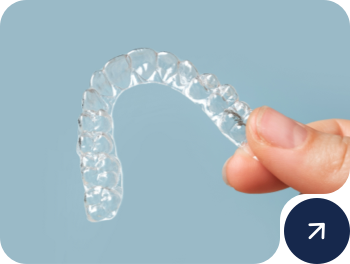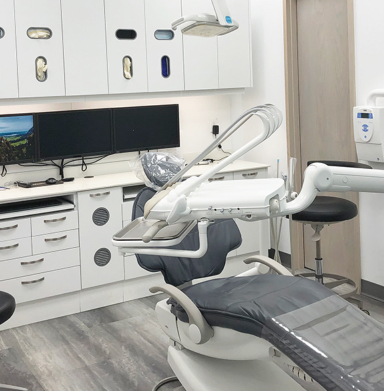Dental implants are artificial tooth roots surgically placed into the jawbone to provide a foundation for artificial replacement teeth. They function similarly to natural tooth roots and provide a stable, long-term solution for missing teeth.
Dental implants offer several benefits over other tooth replacement options, like dentures or bridges, but what you choose depends on your needs and preferences.
What Are the Benefits of Dental Implants?
Many people choose dental implants because they:
- Are durable
- Look, feel, and function like natural teeth
- Support long-term oral health
- Preserve the jawbone
- Are permanent
- Do not require special care or adhesives
Single, Multiple, & Full-Arch Implant Options
A single-tooth implant replaces a single missing tooth without affecting the surrounding teeth.
Multiple teeth implants replace several missing teeth in a row, restoring both functionality and aesthetics.
Full-arch implants replace all missing teeth in an arch (upper or lower jaw).
Details of Basic Dental Implants
Endosteal Implants
Endosteal implants are the most commonly used type of dental implant. They are screw-like in shape and made of biocompatible titanium.
Endosteal implants can support single or multiple teeth through the use of abutments—small connector pieces that attach the implant to a dental crown, bridge, or denture.
Subperiosteal Implants
Subperiosteal implants are positioned on top of the jawbone beneath the gum tissue. This option is particularly suitable for those with limited jawbone density who may not be ideal candidates for other implant techniques.
These implants consist of a custom-designed metal framework that fits your jawbone. Small posts extend from this framework and protrude through the gum, serving as anchors for a denture.
All-on-4 Implants
All-on-4 implants use 4 strategically placed endosteal implants to support a fixed denture, offering a solution for full-arch tooth replacement.
Mini Implants
Mini implants are small versions of endosteal implants with diameter sizes ranging from 1.8 to 3 mm. They can be used in areas with limited space or bone density or for replacing smaller teeth like front incisors.
Mini implants are also made of titanium and are surgically placed into the jawbone. Because of their smaller size, they are most often used for single-tooth replacements.
Zygomatic Implants
Zygomatic implants are used for complex cases of missing teeth in the upper jaw. The implants are longer than traditional implants and are anchored into the cheekbone. They can offer a valuable solution for those with challenging situations or where other options are limited.
How to Choose the Right Implant for You
Choosing the right implant type is personal, and every situation is unique.
Your dentist carefully considers several factors to recommend a suitable implant for your needs, but ultimately, the decision is yours. Here are some questions you can ask your dentist to help decide if implants are right for you.
About the Procedure
- What type of implant(s) do you recommend for my situation and why?
- How many implants will be needed, and where will they be placed?
- What is the expected timeline for the implant process, including surgery and recovery?
- What are the different sedation options available during the implant placement procedure?
Post-Operative Care & Maintenance
- What can I expect regarding discomfort after the implant placement surgery?
- What specific instructions will I need to follow for post-operative care to promote proper healing?
- How important is regular dental hygiene in maintaining the longevity of dental implants?
- How often will I need follow-up appointments to monitor the implants and surrounding tissue?
Alternative Options
- Are there alternative treatment options available for replacing my missing teeth, and how do they compare to implants?
Your Dentist Is Here to Help
Dental implants can offer a life-changing solution for those seeking to restore their oral health and functionality. You are not alone in this journey. Your dental team can answer your questions, address your concerns, and guide you through the process.





















